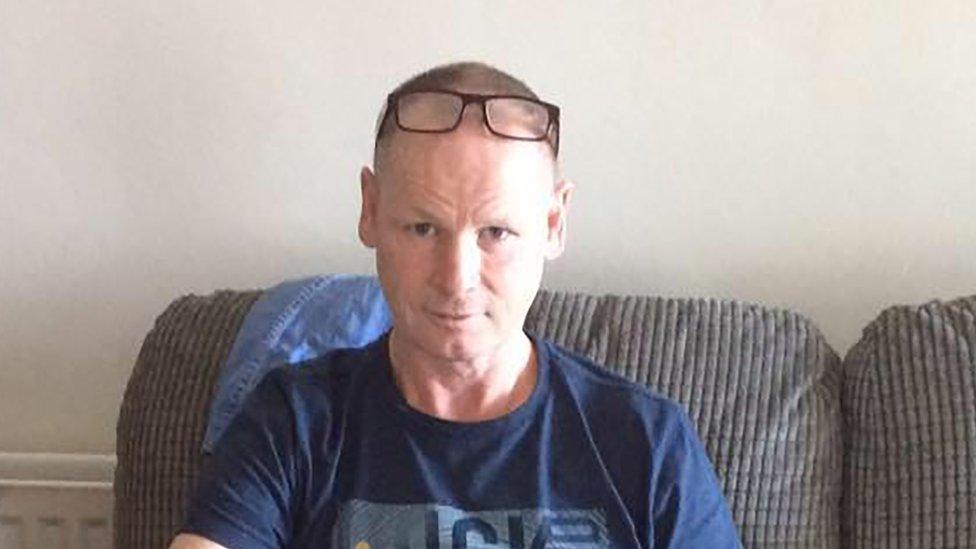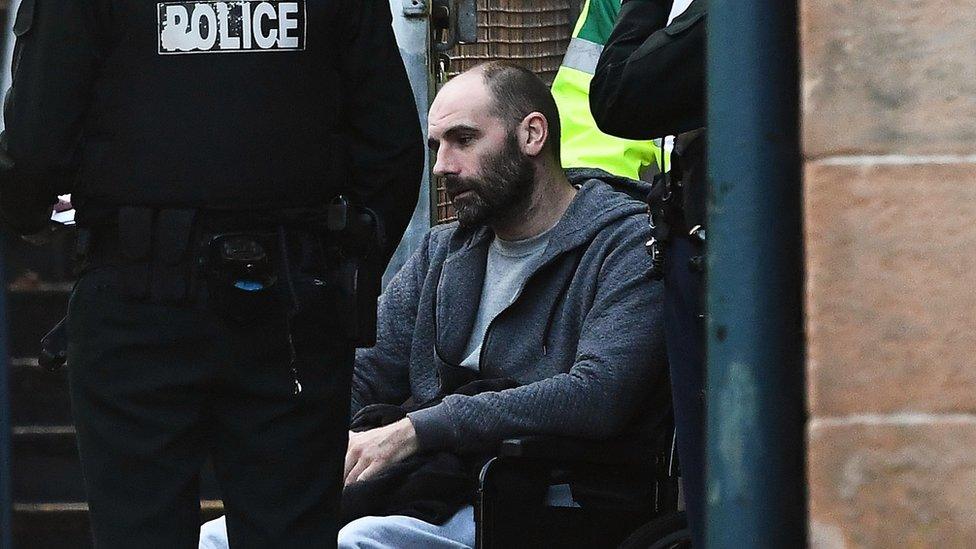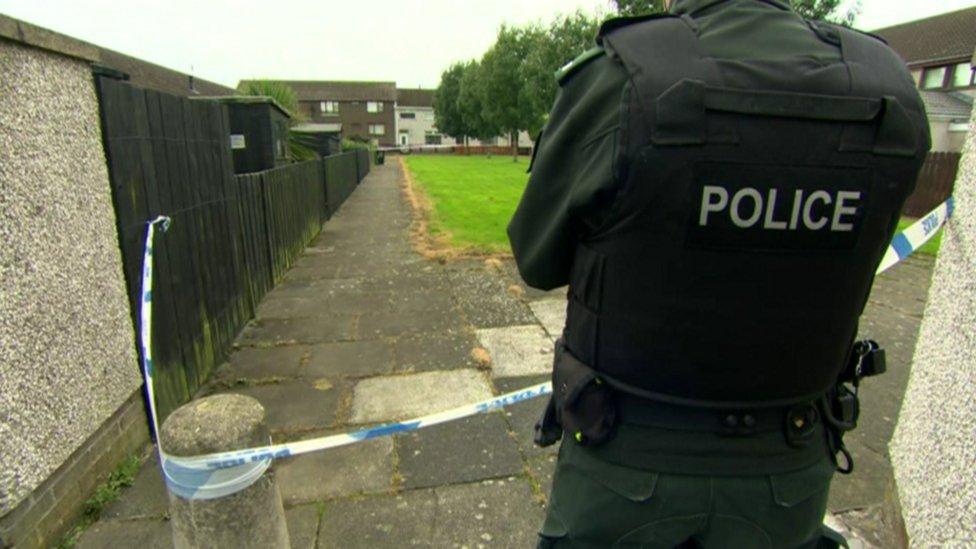Laurence Shaw sister: Knife crime sentences 'need to be tougher'
- Published
Family of knife crime victim call for tougher sentences
The family of a man stabbed to death in county Antrim has appealed for tougher sentences around knife crime in Northern Ireland.
Laurence Shaw, 56, was murdered in his Larne home in October 2017.
He was killed using knives from his own kitchen.
In July, 40-year-old Jackie McDowell, also from Larne, was jailed for 12 years for Mr Shaw's murder after pleading guilty to the attack.

56-year-old Mr Shaw was found dead in a house at Hillmount Gardens in Larne
The Shaw family appealed this sentence as being unduly lenient, but were told by the Public Prosecution Service that the case will not be sent to the Court of Appeal.
Mr Shaw's sister, Rose Stone, said she and her relatives are "extremely disappointed" by the decision.
"It's hard even to speak about it, because it's just heartbreaking," she told the BBC.
"Everyone is getting on with their normal life, and we're just stuck in a time warp."
Jackie McDowell had previously been found to be in possession of a crossbow, arrows and a sword, but received a conditional discharge.

Jackie McDowell was pictured in a wheelchair with his legs in a cast when he appeared in court in 2017
Ms Stone believes that had he received a tougher sentence, her brother may still be alive.
"It might have deterred him from going on to commit such a crime," she said.
"The attack on my brother was vicious and evil."
PSNI figures show that there have been 725 knife-related violent crimes in Northern Ireland over the past year.
This figure includes 482 counts of Actual Bodily Harm and Grievous Bodily Harm, 148 robberies, 57 threats to kill, 28 attempted murders and three counts of rape or sexual assault.
It also includes seven murders - around a quarter of all killings carried out in Northern Ireland over the past 12 months.
'Slap on the wrist'
Rose Stone said her family will continue to campaign for tougher sentences.
"You can never imagine how bad it can be until it happens to you and your family, and I wouldn't like to wish that on anyone," she said.
"If someone is carrying a knife, they shouldn't just be slapped on the wrist and told not to do it again. That's where it all begins."

Mr Shaw was killed in his Larne home with knives from his own kitchen
The PSNI said that Northern Ireland has lower knife crime levels than some other parts of the UK, but stressed that it takes the issue very seriously.
Chief Supt Simon Walls said: "We are targeting people we know carry knives, we carry out specific operations when we believe someone is in possession of a knife or someone presents a risk to the public."
He added that police also run schemes in schools, in which officers talk to young people about the consequences of carrying knives.
"Knives ruin lives," he said.
'Steps to strengthen law'
In a statement, the Department of Justice said it takes offences around knives "very seriously".
It said it had taken steps "to strengthen the law on offensive weapons through inclusion of the provisions of the UK-wide Offensive Weapons Act 2019".
"This will ensure parity with the UK in terms of enhancing public safety and will also ensure a cross-jurisdictional effect in terms of dealing with such crime," the statement read.
However, it added that provision of the 2019 Act for Northern Ireland "can only be commenced on return of the Northern Ireland Assembly".
- Published2 July 2019
